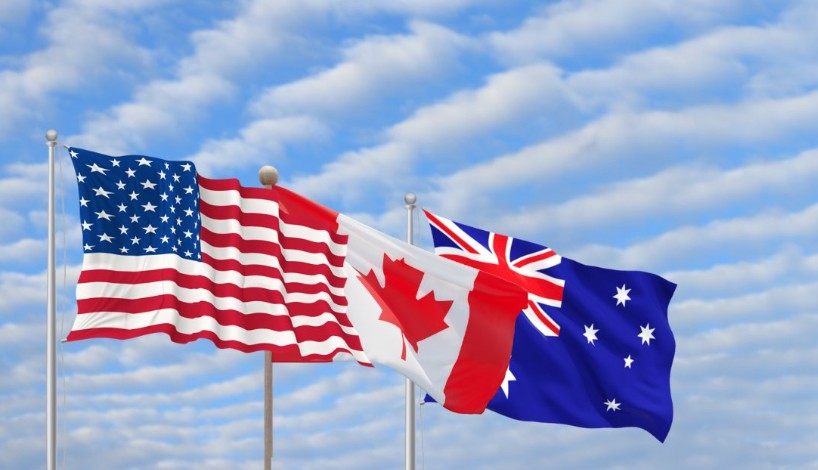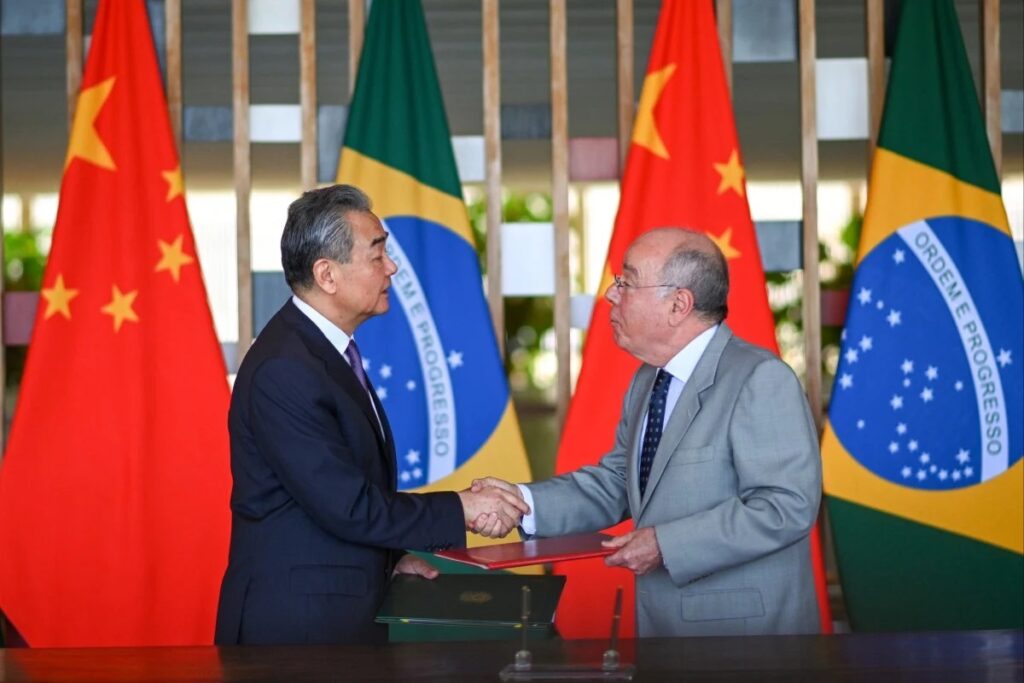
Visa exemptions for certain nationalities rei...
read more

The deal struck by the diplomatic authorities of both countries allows for the granting of multiple-entry visas for business and tourism, which are now valid for up to ten years
As of 2023, the Seafarer’s Identity Document (SID) issued under ILO Convention 108 of 1958 (C-108) is no longer accepted as a valid travel document for foreign seafarers entering the country, as reported in this circular. Since then, the Brazilian immigration authority (Federal Police) only accepts SIDs issued under ILO Convention 185 of 2003 (C-185).
Nevertheless, crewmembers whose country of nationality has not adhered to C-185 may still enter the country, disembark, and be repatriated, provided they have a valid passport and, where applicable, a visa based on their nationality.
While the People’s Republic of China is Brazil’s largest trading partner, both countries reciprocate the requirement that each other’s nationals obtain short-term visas for business and tourism as a condition of entry. Exceptionally, under the terms of the 1979 Agreement on Maritime Transport signed by the two countries, Chinese seafarers employed on owned or Chinese-flagged vessels, whether owned or time-chartered, are permitted to enter the country without a visa. They are also allowed shore leave in the city where the port is located.
However, Chinese crews still need to obtain a visa from a Brazilian embassy or consulate to arrive by air to join a ship in Brazil or disembark at a national port for repatriation unless the airport of departure is in the same city as the port called by the vessel. Further details of this agreement are explained in this article.
The Brazilian government recognises Hong Kong as a Special Administrative Region of China; however, from a migration perspective, they are regarded as separate states subject to distinct visa regimes. While Hong Kong citizens are visa-exempt for visits lasting up to 90 days, Chinese citizens visiting Brazil for business or tourism must obtain a visa. The same requirement applies to Brazilians travelling to China, as outlined in the entry visa table published by the Brazilian Ministry of Foreign Affairs and regularly updated. Therefore, the 1979 Agreement does not apply to Chinese crews on board Hong Kong-flagged vessels.
In an effort to facilitate travel, promote business and enhance tourism, the foreign affairs ministers of Brazil and China signed a new visa agreement last January. This agreement, effective February 2024, introduces the so-called visitor visa (VIVIS) for leisure, business and family travel, featuring a significantly longer validity period.

Under the new agreement, Chinese and Brazilian citizens can enjoy multiple entries for stays of up to 90 days per visit and a maximum total stay of 180 days within a migratory year (12 months from the first entry). The VIVIS is now valid for up to 10 years from the date of issuance, which is double the previous limit.
Additionally, Chinese officials who are not accredited in Brazil or holders of public affairs passports are exempt from needing a visa for stays not exceeding 30 days.
Shipowners are legally liable for ensuring that travellers (crewmembers, passengers and stowaways) possess the necessary travel documents. The only acceptable exclusion of liability is when the offence is attributable to force majeure or an Act of God.
Regardless of bilateral agreements and visa waiver policies, the Federal Police are entitled to demand proof of a seafarer’s legitimacy, intent, and financial situation. This aspect is typically resolved through shipping agents’ undertaking to cover costs incurred during the seafarers’ stay, as well as their welfare and repatriation expenses.
The immigration authority retains the discretion to limit the length of stay for visiting seafarers, irrespective of the applicable visa regime. Likewise, permission to enter or leave the country is granted without prejudice to the shipowners’ responsibilities arising from the ILO Maritime Labour Convention (MLC 2006), which came into effect in Brazil in May 2021.
Since 2023, the number of penalties imposed on shipowners bringing Chinese seafarers to Brazil on board non-Chinese vessels has significantly increased. Immigration fines typically range from BRL 100 to BRL 10,000 (today USD 18 to USD 1,763) for individual travellers and from BRL 1,000 to BRL 1 million (USD 176 to USD 176,278) for carriers. For repeat offences occurring within the same migratory year, the fine can increase up to fivefold. In addition to fines, relevant regulations impose heavier penalties, including short-notice repatriation or deportation of foreign travellers who seriously violate immigration rules, without prejudice to the imposition of a fine.
Although the visa agreement does not entirely address the issue of Chinese crews engaged on non-Chinese ships, it offers some relief and options to shipowners whose vessels frequently call at Brazilian ports. The visa is now valid for ten years, allowing ship operators and manning agents to plan and secure a reasonable proportion of their seafaring workforce with the long-term VIVIS visa, thus avoiding exponential fines.
Brazilian visas are issued only at diplomatic missions abroad. Currently, in addition to its embassy in Beijing, Brazil has consulates-general in Shanghai, Guangzhou and Hong Kong.
Please read our disclaimer.
Related topics:
Rua Barão de Cotegipe, 443 - Sala 610 - 96200-290 - Rio Grande/RS - Brazil
Telephone +55 53 3233 1500
proinde.riogrande@proinde.com.br
Rua Itororó, 3 - 3rd floor
11010-071 - Santos, SP - Brazil
Telephone +55 13 4009 9550
proinde@proinde.com.br
Av. Rio Branco, 45 - sala 2402
20090-003 - Rio de Janeiro, RJ - Brazil
Telephone +55 21 2253 6145
proinde.rio@proinde.com.br
Rua Professor Elpidio Pimentel, 320 sala 401 - 29065-060 – Vitoria, ES – Brazil
Telephone: +55 27 3337 1178
proinde.vitoria@proinde.com.br
Rua Miguel Calmon, 19 - sala 702 - 40015-010 – Salvador, BA – Brazil
Telephone: +55 71 3242 3384
proinde.salvador@proinde.com.br
Av. Visconde de Jequitinhonha, 209 - sala 402 - 51021-190 - Recife, PE - Brazil
Telephone +55 81 3328 6414
proinde.recife@proinde.com.br
Rua Osvaldo Cruz, 01, Sala 1408
60125-150 – Fortaleza-CE – Brazil
Telephone +55 85 3099 4068
proinde.fortaleza@proinde.com.br
Tv. Joaquim Furtado, Quadra 314, Lote 01, Sala 206 - 68447-000 – Barcarena, PA – Brazil
Telephone +55 91 99393 4252
proinde.belem@proinde.com.br
Av. Dr. Theomario Pinto da Costa, 811 - sala 204 - 69050-055 - Manaus, AM - Brazil
Telephone +55 92 3307-0653
proinde.manaus@proinde.com.br
Rua dos Azulões, Sala 111 - Edifício Office Tower - 65075-060 - São Luis, MA - Brazil
Telephone +55 98 99101-2939
proinde.belem@proinde.com.br